Dorota Danielewicz. Culture manager, Slavicist, author and journalist

Dorota Danielewicz [also published as Dorota Kerski and Dorota Danielewicz-Kerski] was born on 30 October 1964 in Poznań as the first child of Marian Danielewicz – a physicist, inventor, and one of the first computer programming specialists in Poland – and Małgorzata Danielewicz, who had a degree in life sciences. Dorota’s sister Emanuela was born in 1971.
The family lived in the Jeżyce district of Poznań; Dorota spent most of her early childhood with her grandparents in Rawicz and Nowy Tomyśl.
She discovered her love of foreign languages at the tender age of nine. Through her uncle, who was a professor of classical philology at Adam Mickiewicz University in Poznań, she joined an experimental group set up by pedagogues at the university. The prospect of travelling to visit her relatives in England was a great incentive for her to study. However, her first trip abroad at the age of 10 – an excursion with the University of Biosciences – took her to Rügen in the GDR. Thanks to her sociable nature, which she retained as an adult, she became friends with the twins Diggi and Daggi, who were the same age as her and whose father worked at the Faculty of Agriculture in Halle. The girls stayed in touch for several years.
Young Dorota loved reading and also drew a lot. Writing was another passion she developed very early on, including poetry, and she enjoyed acting out scenes with dolls she had made herself. “I had a lot of freedom”, she recalls in the interview with “Porta Polonica”. “I spent a lot of time outdoors with children my own age. We played on the carpet rail, in the courtyard, sang counting rhymes”, she says.
For secondary school, she chose the Jan Paderewski Grammar School in Poznań, specialising in maths, physics, and English. She was a good student who wrote a lot and took part in recitation competitions, which is how she was selected to take part in a television programme for young people which was due to start in autumn 1981.
Permanent relocation to Germany
At the age of 16, Dorota Danielewicz embarked on a life-changing train journey with her parents and sister, emigrating by train from Poznań to West Germany on 3 July 1981. Their destination: Berlin.
Some months previously, Dorota’s father, an engineer, had become a target of the Polish authorities after establishing a branch of the independent trade union “Solidarność” at his workplace in Poznań. His work, however, provided an unexpected opportunity. Through collaborations with the renowned Göttingen-based company “Sartorius”, he made annual trips to West Germany for professional training. His German colleagues, recognising his expertise, offered him a position should he ever choose to emigrate. When it became known that Marian Danielewicz was at risk of internment, Dorota’s parents decided to leave Poland. As usual, Dorota’s father went to Germany in early summer for professional training on a work visa. Three weeks later, his wife and two daughters followed; they had been issued passports to visit their former neighbours who had moved to Berlin a few weeks earlier. Dorota and her sister believed they were going on holiday to Berlin for a few weeks. She was very surprised when it turned out that they were travelling from the train station in Berlin to the transit camp in Marienfelder Allee, where her father was already waiting for his family. He would soon be taking up a position at “Sartorius”, where he would remain until retirement.
Dorota was horrified at the time. She had ended up in a camp, in a run-down building full of rooms with bunk beds. “I’d been to England the year before. I had no connection to Germany”, she says in the interview with “Porta Polonica”. “I felt like I was on an alien planet, as if I’d been abducted. I was probably depressed. My parents had made the decision on their own, without giving any explanations. They just kept repeating: ‘You’re better off here,’ and that was that”, she recounts.
The 16-year-old Dorota deeply missed her friends in Poznań, including her first boyfriend, during those early days in Germany. The family spent two months in the camp on Marienfelder Allee before moving into accommodation for resettlers and eventually finding a flat in the Schöneberg district in autumn 1981.
Navigating the maze of school integration
In Berlin, Dorota gained admission to a language course for refugee children aged 13–18. A fast learner, she was placed in a group with children who had learnt German in Poland after just three months. Six months later, she was transferred to year 10 of a German class. After the end of the school year, Dorota wanted to look for a new school. She found a grammar school to which she commuted for an hour through Berlin, but soon realised that there was a strict separation between Polish and German children at the school. Being very keen to integrate, she did not feel happy there and started looking for a new school again, eventually settling on a private school with a monthly fee of 300 marks. But she also felt uncomfortable here: the other young people all came from affluent backgrounds and had little interest in school and learning. She, however, wanted to learn and was ambitious. One day she was asked to write an essay on a text by Kurt Tucholsky. She was unable to formulate her thoughts, but at the same time she realised that she had understood the work perfectly. Frustrated, she also left this school and worked as an ice-cream vendor. Another change of school would provide a lifeline: she started attending the Anna Freud Secondary School in Berlin, where young people in years 11 to 13 are prepared for their school-leaving exams. Dorota chose psychology as her specialisation. She was taught together with a group of disaffected young people from good grammar schools. Individualists who, like many of their teachers, held left-wing views. She remembers the German teacher and a psychologist; both were educators who instilled a critical attitude towards the world, which meant that writing original essays was no longer a problem. She soon felt at home, both in Berlin and at school. She drew a lot of strength and inspiration from her relationship with her German boyfriend. Chamber concerts were held in the living room of his house, his parents took her to cultural events and recommended books for her to read. Dorota also enjoyed ordinary teenage life. She graduated from high school in 1985. Danielewicz described the challenging time of adapting to a new city and a new environment years later in the book “Auf der Suche nach der Seele Berlins” (“In Search of the Soul of Berlin”)[1].
[1] “Sommer in der Stadt”, in: Dorota Danielewicz: Berlin. Auf der Suche nach der Seele Berlins, Warsaw 2013, pp. 22
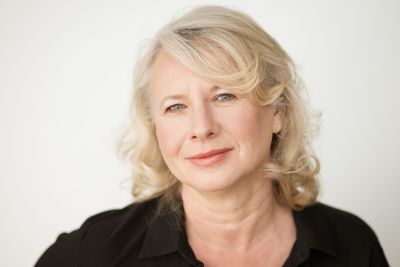
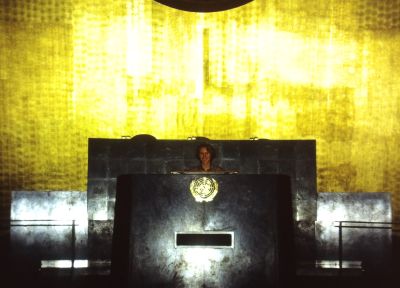
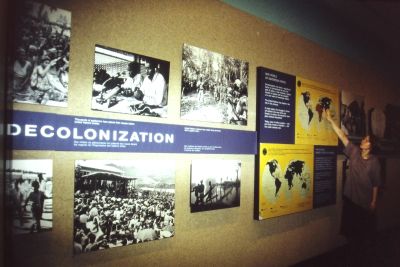
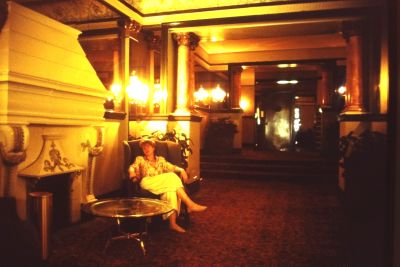
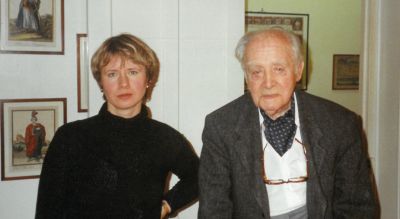
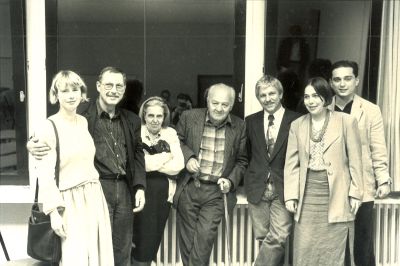

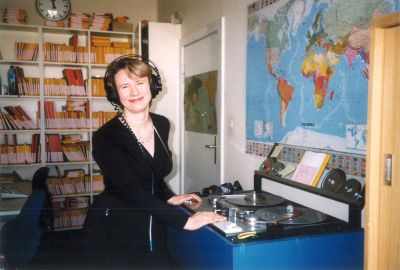
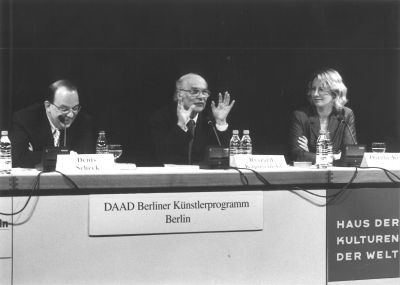
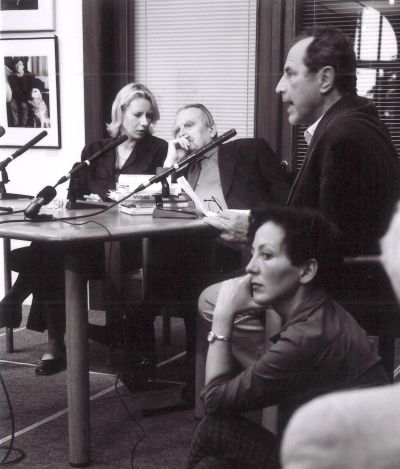
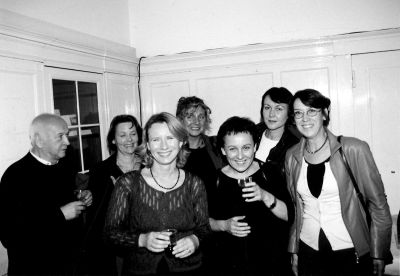
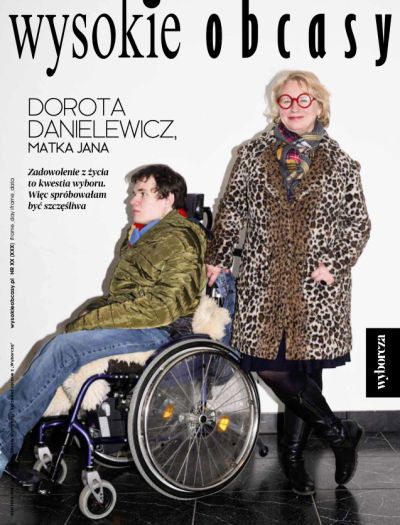
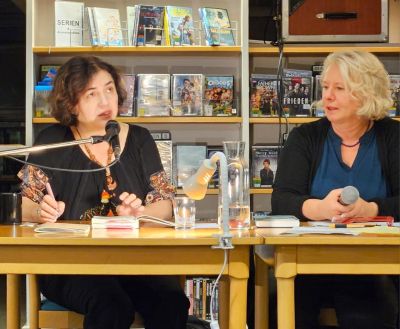

![Redakteur:innen von „COSMO [Radio] po polsku“. Von links: Tomasz Kycia, Adam Gusowski, Maciej Wiśniewski, Monika Sędzierska Redakteur:innen von „COSMO [Radio] po polsku“. Von links: Tomasz Kycia, Adam Gusowski, Maciej Wiśniewski, Monika Sędzierska](/sites/default/files/styles/width_100_tiles/public/00%20Redaktorzy%20prowadza%CC%A8cy%20audycje%20COSMO%20Radio%20po%20polsku.%20Od%20lewej%20Tomasz%20Kycia%2C%20Adam%20Gusowski%2C%20Maciej%20Wis%CC%81niewski%2C%20Monika%20Se%CC%A8dzierska.%20RBB%20Berlin%2C%202019.%20Copyright%20RBB.jpeg?itok=luTJDjgi)
